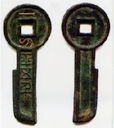camp
A campsite or camping pitch is a place used for overnight stay in an outdoor area. In UK English, a campsite is an area, usually divided into a number of pitches, where people can camp overnight using tents , camper vans or caravans; this UK English use of the word is synonymous with the US English expression campground. In American English, the term campsite generally means an area where an individual, family, group, or military unit can pitch a tent or park a camper; a campground may contain many campsites.
A summer camp or sleepaway camp is a supervised program for children or teenagers conducted during the summer months in some countries. Children and adolescents who attend summer camp are known as campers. The traditional view of a summer camp as a woody place with hiking, canoeing, and campfires is changing, with greater acceptance of newer types of summer camps that offer a wide variety of specialized activities. For example, there are camps for the performing arts, music, magic, computer programming, language learning, mathematics, children with special needs, and weight loss.
A tent city is a temporary housing facility made using tents or other temporary structures. State governments or military organizations set up tent cities to house evacuees, refugees, or soldiers. UNICEF's Supply Division supplies expandable tents for millions of displaced people. UNICEF = United Nations Children's (formerly International Children's Emergency) Fund.
A refugee camp is a temporary settlement built to receive refugees and people in refugee-like situations. Refugee camps usually accommodate displaced persons who have fled their home country, but camps are also made for internally displaced people. Usually, refugees seek asylum after they have escaped war in their home countries, but some camps also house environmental and economic migrants. Camps with over a hundred thousand people are common, but as of 2012, the average-sized camp housed around 11,400. They are usually built and run by a government, the United Nations, international organizations (such as the International Committee of the Red Cross), or non-governmental organization. Unofficial refugee camps, such as Idomeni in Greece or the Calais jungle in France, are where refugees are largely left without support of governments or international organizations.
A military camp or bivouac is a semi-permanent facility for the lodging of an army. Camps are erected when a military force travels away from a major installation or fort during training or operations, and often have the form of large campsites. In the Roman era the military camp had highly stylized parameters and served an entire legion.
A prisoner-of-war camp (often abbreviated as POW camp) is a site for the containment of enemy fighters captured by a belligerent power in time of war. The Cowra breakout, on August 5, 1944, is believed to be the largest escape of POWs in recorded history and possibly the largest prison breakout ever. At least 545 Japanese POWs attempted to escape from a camp near Cowra, New South Wales, Australia. Most sources say that 234 POWs were killed or committed suicide. The remainder were recaptured.
The first camps were established in March 1933 immediately after Adolf Hitler became Chancellor of Germany. Following the Night of Long Knives in 1934, the concentration camps were run exclusively by the SS (Schutzstaffel) via the Concentration Camps Inspectorate and later the SS Main Economic and Administrative Office. Initially, most prisoners were members of the Communist Party of Germany, but as time went on different groups were arrested, including "habitual criminals", "asocials", and Jews. After the beginning of World War II, people from German-occupied Europe were imprisoned in the concentration camps. Following Allied military victories, the camps were gradually liberated in 1944 and 1945, although hundreds of thousands of prisoners died in the death marches.
Nazi Germany used six extermination camps (German: Vernichtungslager), also called death camps (Todeslager), or killing centers (Tötungszentren), in Central Europe during the Holocaust in World War II to systematically murder over 2.7 million people—mostly Jews—during the Holocaust.
Believing it was shameful to be captured alive in combat, the Japanese ran their camps brutally, and many prisoners died in them. the Japanese field army code included a "warrior spirit" , which states that an individual must calmly face death. Those who disobeyed orders would be sentenced to death by the symbolic Japanese sword. The sword was seen as a symbol of wisdom and perseverance to the Japanese, and it was an honor to die by it.
六级/考研单词: overnight, outdoor, tent, van, caravan, synonym, militant, supervise, teenager, conduct, adolescent, hike, magic, compute, mathematics, million, displace, unite, situate, accommodate, flee, asylum, jungle, lodge, erect, install, fort, seldom, era, parameter, abbreviation, jail, commit, suicide, march, chancellor, administer, habitat, imprison, gradual, liberty, shame, combat, brutal, warrior, sword, persevere
江户时代以后切腹演变成象征性的仪式。用以切腹的武士刀改成了扇子或木刀,切腹者用它在肚子上比划一下,介错的刀就下来了,即“扇子切(扇腹)”。介错 かいしゃく Ka-i-sha-ku指斩首切腹者——让切腹者更快死亡减少痛苦。“介错”当中的“介”意为“辅助”,如“中介”。记得有“金错刀”这个名词,搜了下是种铜钱。“聚九州之铁不能铸此错者”出自《资治通鉴·唐昭宗天佑三年》。这个“错”的意思可能是镀金的铁钱:错,金涂也。今所谓镀金。"错"倒是还有锉刀的意思。哦,错了,应为:
- 王莽铸造的钱币,以黄金错镂其文。
- 刀名。《后汉书·冯绲》武陵五溪蛮夷作难,诏遣车骑将军冯绲南征, 绲表奏应奉,赐金错刀一具。
- 其它

しゃ行拗音:http://www.wushiyintu.com/wushiyintu/3251.html




 浙公网安备 33010602011771号
浙公网安备 33010602011771号